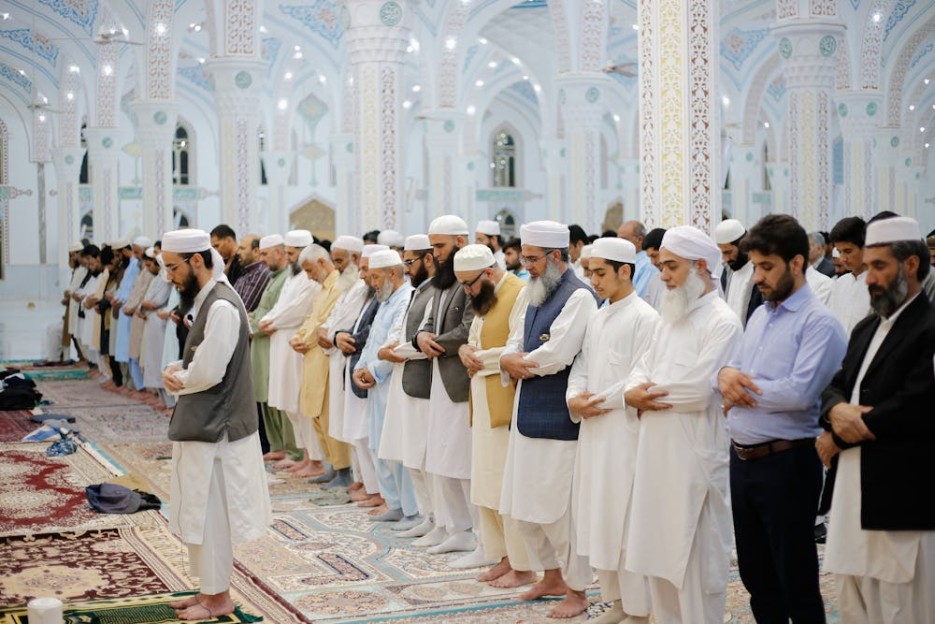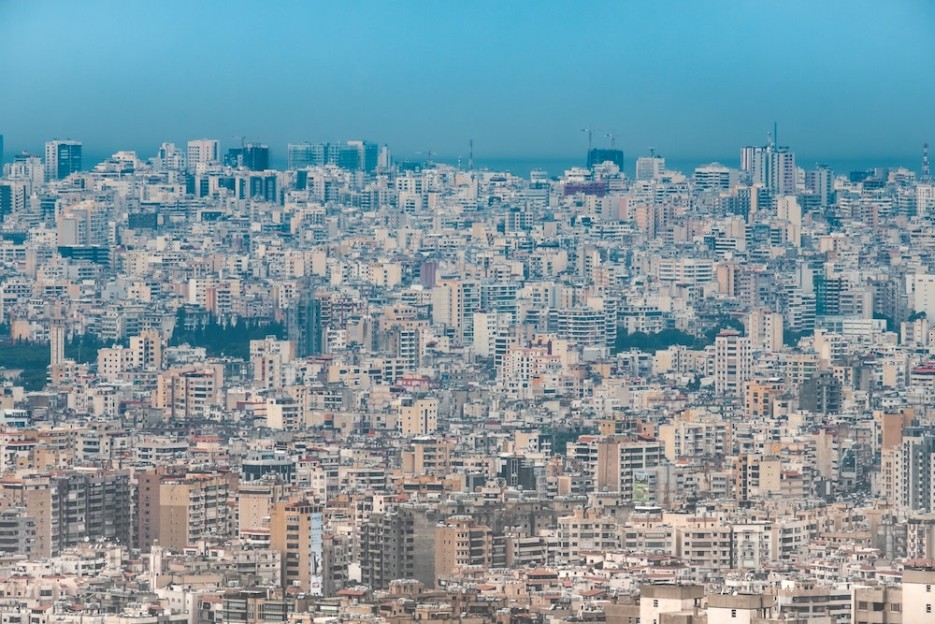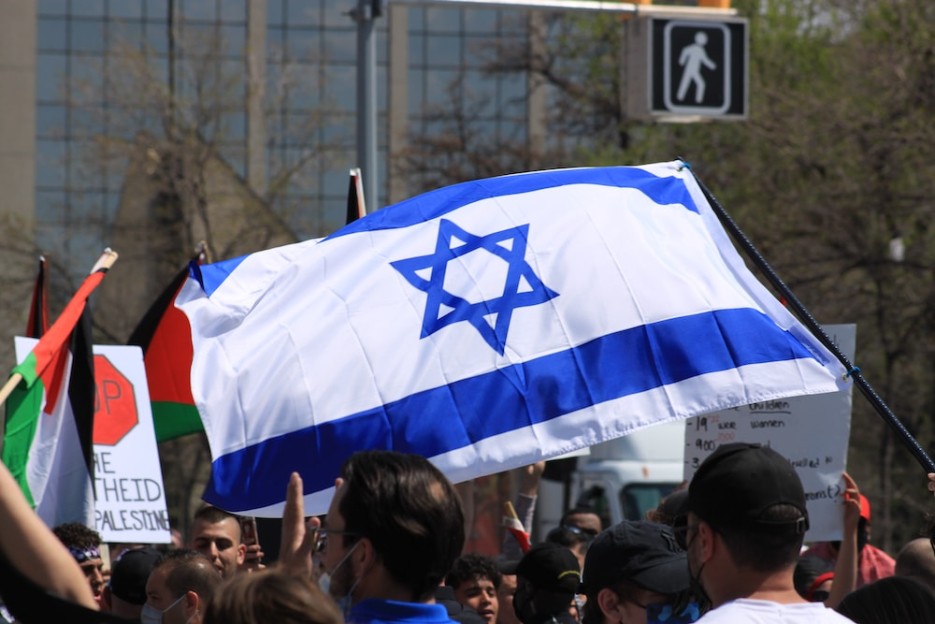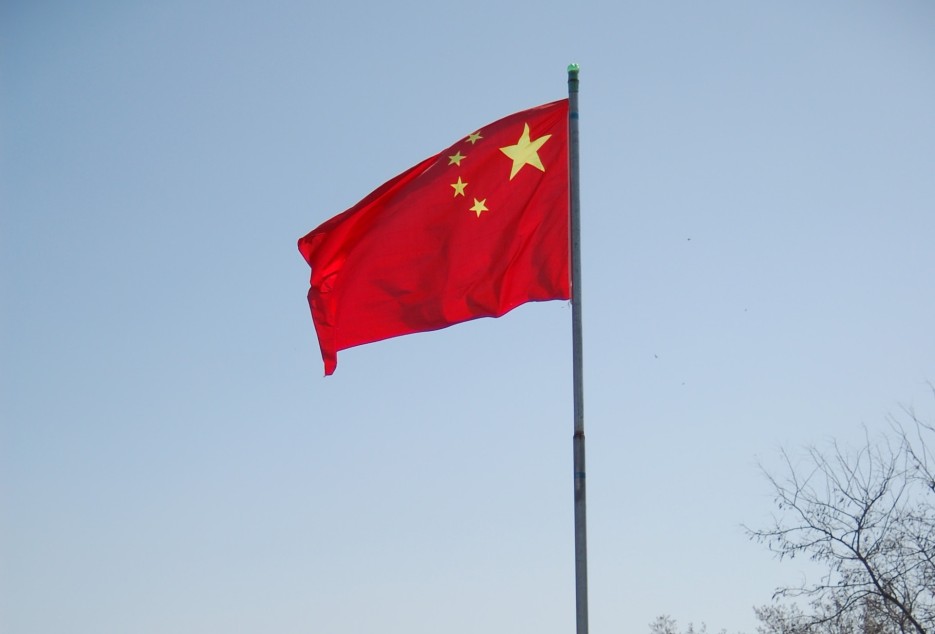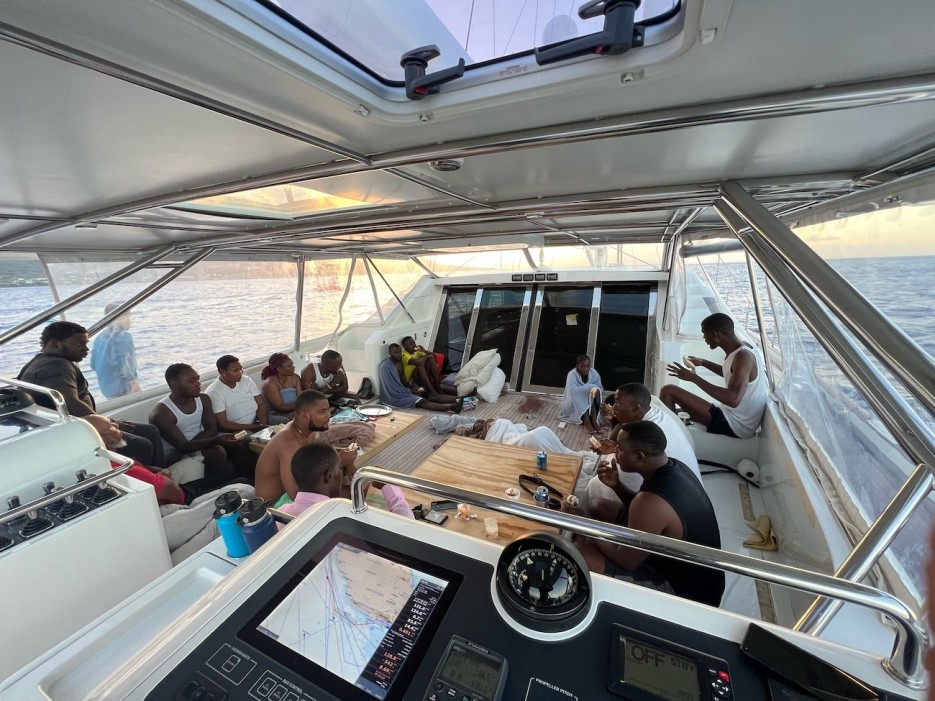
16 Cameroonian migrants have been rescued at sea off the coast of St Kitts & Nevis after their fishing boat capsized.
The Sailing Yacht Genevieve was en route from Antigua to Saint Maarten when the sounds of a woman’s scream were heard in the distance around 11.30pm local time. The boat immediately turned around and found two people in the water. A man was clinging on to a damaged life jacket while another woman was found 400m further away who had been holding on to a plastic barrel. The capsized vessel had 32 people on board.
Captain Thomas Auckland, who had been coordinating efforts to locate and rescue anyone found in the water, discharged two red parachute flares to alert anyone of their presence, working with his crew through the night to search for any additional survivors in the area.
“With no knowledge of whether or not the vessel was still afloat, we decided to continue slowly downwind towards the brightest looms of St Kitts which would be visible from the water,” said Captain Thomas.
The boat crew would soon encounter more objects floating in the water leading them to more survivors.
“At around 00:28, the crew started spotting plastic drums floating in the water, and shortly afterwards they noticed a light coming in and out of sight, which later proved to be the light of a mobile phone being waved around. On approach we discovered the upturned fishing skiff, “La Belle Michelle” with 15 persons straddled on the hull, approximately 1.1nm from the first casualty.”
Crew members were assigned roles during the rescue as more people were found over the coming hours with injuries being assessed. The local coastguard had been informed and several vessels were en-route to help.
“Events now entered a new phase. I was clearly aware that we had 16 migrants on board, 13 of whom were male, of which we knew nothing other than the fact that they were willing to risk their lives being smuggled across to St Thomas. So we locked down the exterior of the boat and placed the female members of crew up forward, with everyone in direct radio contact. All casualties had been given water, sugary drinks, food and blankets, and were grouped together in the cockpit. The male crew members remained at the helm station, while I ran back and forth on the VOIP (Voice Over the Internet) line with MRCC Fort du France, who requested that we remain at the scene until air support arrived. As there was evidently a security risk on board, at 03:42 we were given permission to depart the scene and headed directly to Basseterre in St Kitts, which was approximately 34nm away,” added Captain Thomas.
“Once the day dawned and we were under coastguard escort, it became quite clear that these terrified Cameroonian nationals were extremely grateful to us and posed no risk to us at all. The female crew came and administered basic first aid; fed, watered and tried to dry out as much of their clothing as possible, before we arrived in Basseterre. On arrival in Basseterre they were transferred via coastguard boat to their base, where I went ashore and made statements to the various authorities.”
The former Professional Yachting Association member wanted to share his story with seafarers in the hope that they could be better prepared for any incidents and what is now a growing issue in both the Mediterranean and English Channel, as well as to raise awareness for the Cameroonian Nationals stranded in Antigua with the hope of improving their quality of living. Sharing his first-hand account of the night of 27th March, his quick response and coordination with the onboard crew managed to save many lives.
“I think what I take away most from this is just how well the crew performed under immense pressure: they were all making very sensible and rational decisions in a situation in which they have had very little training.”
Having considered the impact of the event, Captain Thomas noted, “All of the crew, myself included, are still in a stage of processing all that occurred. It is affecting everybody in a slightly different way, but knowing that there were 32 people on board, and only 16 survived is perhaps the hardest part for us all to comprehend.”
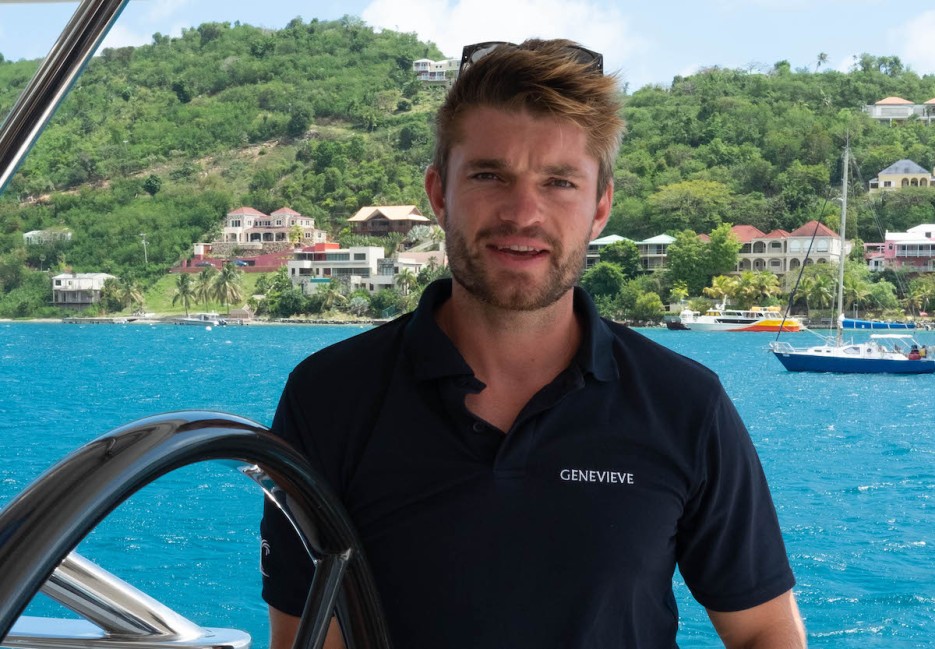
Captain Thomas shared the following statement for all sea crews and captains should they ever be in a situation like theirs:
“I sincerely hope that none of you ever have to encounter such an event during your time at sea, but if you do I hope this account may be of some use. In conclusion, never underestimate the importance of good watch-keeping – and rest assured that the teamwork and professionalism exhibited by your crew will leave you feeling very, very proud.”
“I would like to thank, MRCC Fort du France, MV Britannia, Marine Assist Osprey, SY Midnight, St Kitts Coastguard and the numerous other vessels, that came together so selflessly, “it is an honour to sail the waters with you”.
Following the migrant crisis in the Mediterranean there has been an uptick in crossings around the world. The UK in the past year has also been particularly affected by a wave of Migrant vessels attempting to traverse the English Channel. PM Rishi Sunak recently held a press conference with French counterpart Emmanuel Macron on the issue, with both leaders agreeing a new deal for the UK and France to address the ever increasing number of crossings, with more policing to be put into place to stop traffickers from exploiting migrants.
With sea crews also being more exposed to migrant crossings in different parts of the world, there’s a need to provide more training to seafarers who may have to suddenly come to the aid of a migrant vessel that is in danger.
First-hand account provided by Captain Thomas Auckland with additional editing from the PYA.

